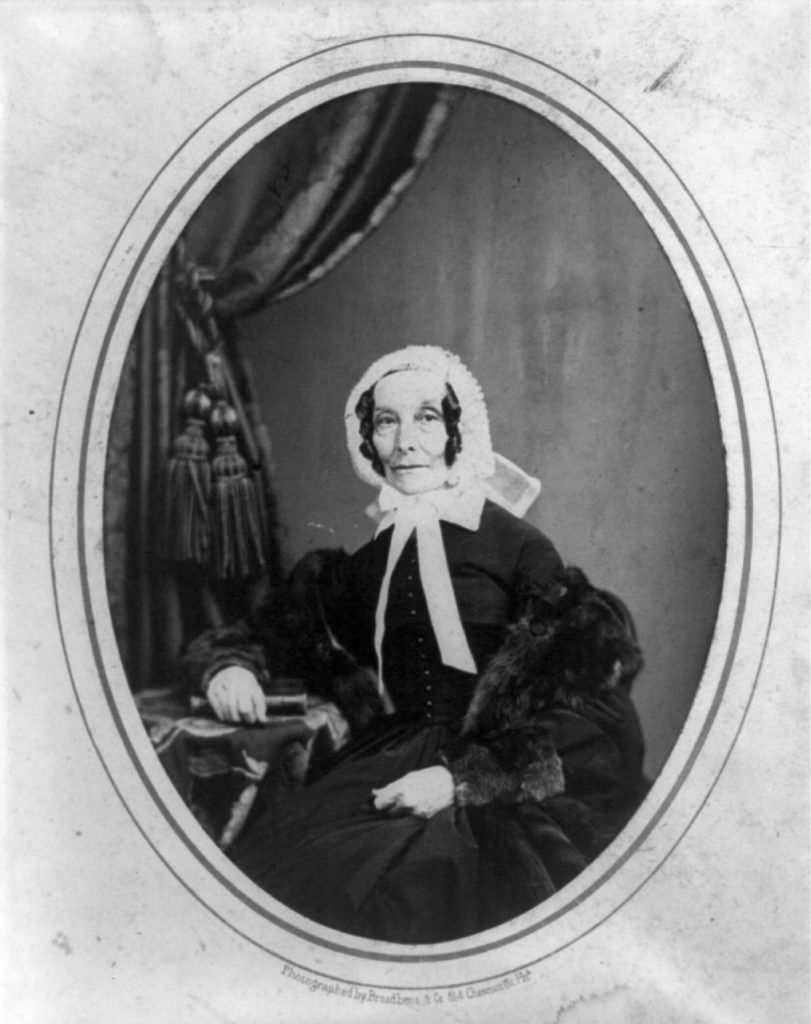Rebecca Gratz, the seventh of twelve children born to Miriam Simon and Michael Gratz, was raised in an atmosphere that fostered learning and artistic taste, as well as patriotism, civic engagement and communal pride. It is therefore hardly surprising that she would grow up to take on the leadership of Jewish communal institutions, establishing standards for Jewish education in the United States that would outlive her for many generations.
Born in Lancaster, Pennsylvania, Gratz spent the bulk of her life in Philadelphia, surrounded by older and younger siblings, including Frances, Rebecca, Benjamin, Rachel and Joseph. Rebecca took full advantage of the cultural opportunities available to young women of her station. She attended women’s academies, and perused her father’s extensive library. By the time she was in her twenties, she had become part of a Philadelphia literary circle that included members of the prominent Fenno, Ewing, Rush, and Hamilton families, and was a contributor to the Port Folio, one of the finest literary periodicals of its time. It was through her literary activities that she became acquainted with the New York writer Washington Irving.
Miriam Gratz instilled in her daughter a distinctive sense of communal responsibility along with charitable duty to the unfortunate. These qualities became characteristic of Rebecca Gratz’s public activities throughout her adult life. Her first endeavor was the non-sectarian Female Association for Relief of Women and Children in Reduced Circumstances, which she helped to found, along with her mother, her sister Richea and a number of other prominent Philadelphia women, in 1801, when she was just 20 year old. Eighteen years later, she would help to found a similar charity for poor Jewish women, the Female Hebrew Benevolent Association, which soon became a model for Jewish charities later established in other communities.
Rebecca Gratz had no interest in marriage, advising friends that she was a stranger to love and had doubts about the possibility of marital happiness. However, she maintained a wide circle of friends, the closest of whom were Christians, even while her family and the Jewish community remained at the heart of her public and private endeavors. Though she never married, she spent much of her life caring for numerous family members. She helped to raise her younger sister Rachel’s children following Rachel’s death in 1823, supervising their education and maintaining a tender concern for their welfare. Thus, she was able to experience the joys of motherhood without the trials of “an ill advised marriage.” In fact, the love of children formed the underpinning for much of Gratz’s communal activity, stimulating her to participate in the founding and administration of the Philadelphia Orphan Asylum in 1815, the Hebrew Sunday School in 1838 and the Jewish Foster Home in 1855. She would serve the Orphan Asylum as its Secretary for more than forty years.
Her particular concern for the education of Jewish children led Gratz to develop a curriculum for the Jewish Sunday school at Mikveh Israel, based on the pedagogy of the Jewish writer and publisher Isaac Leeser, then Hazan at Congregation Mikve Israel, and the Anglo-Jewish teacher and writer Grace Aguilar, whose work Leeser brought to print in the United States.
While celebrated today for her numerous philanthropic activities, Gratz was equally known in her own time for her uncompromising adherence to Judaism despite her integration into the upper echelons of Philadelphia society and its cosmopolitan literary circles. It was this moral rectitude which led Washington Irving, according to one account, to recommend her to Sir Walter Scott as the model for the character bearing the same name in the latter’s novel Ivanhoe.
